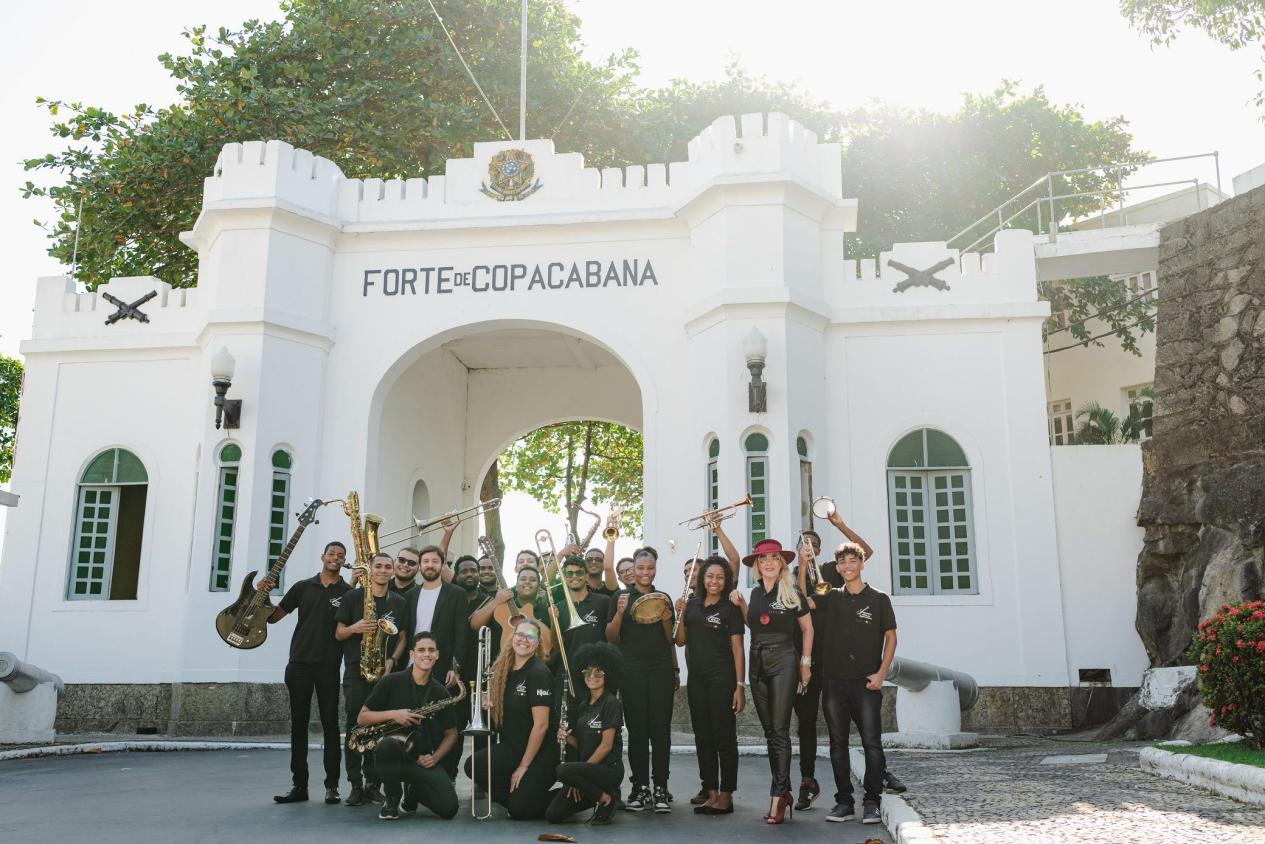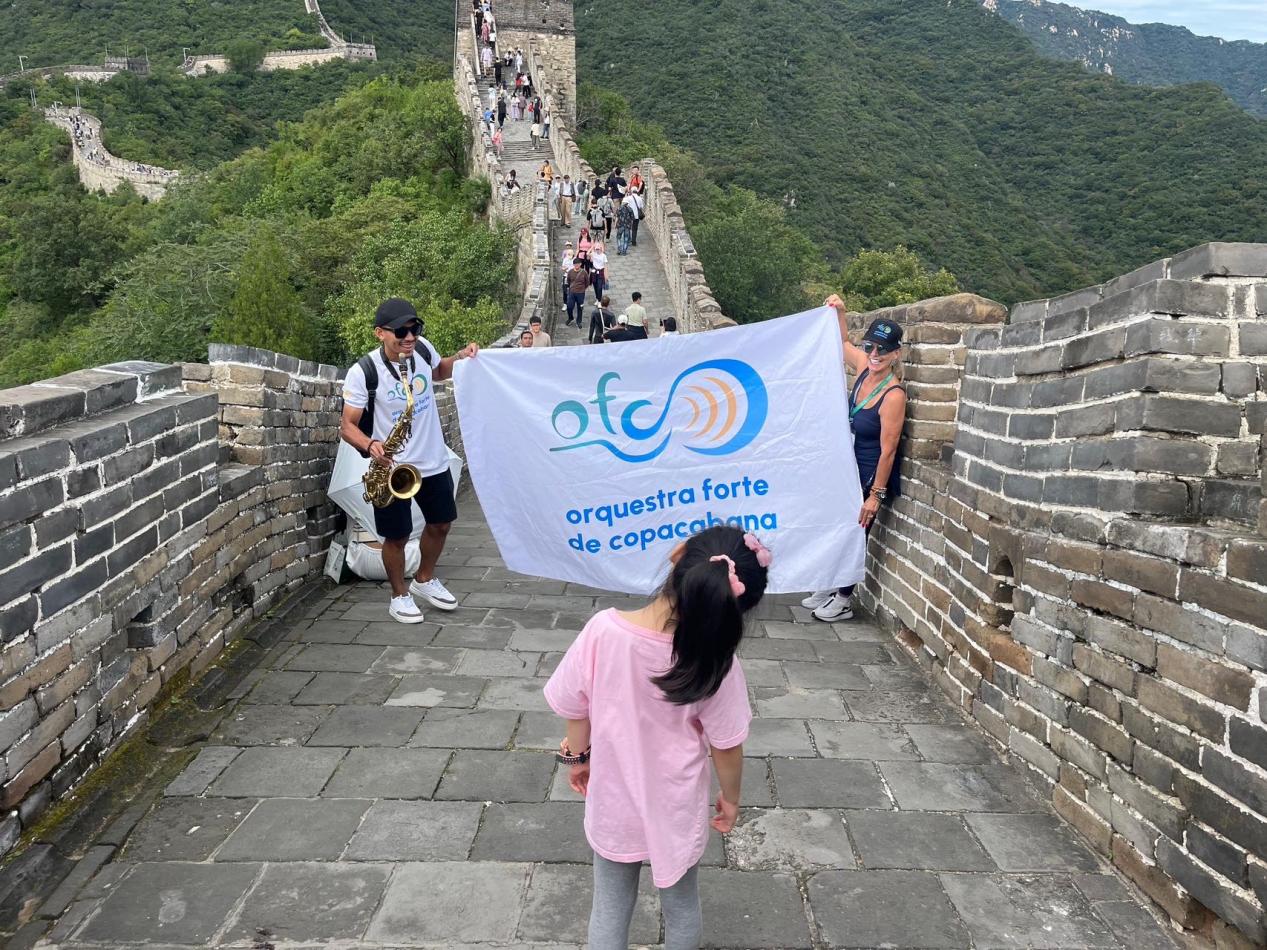|
With ongoing exchanges, Brazil and China are poised to deepen their friendship and cooperation, forging a lasting legacy of mutual respect and shared creativity.。
The Forte de Copacabana Orchestra in Rio de Janeiro.?Photo provided to Guangming Online.。 Despite different histories and 國產亂視頻cultural roots, Brazil and China share fascinating artistic parallels. “In both countries, art connects the past, present, and future,” Melchior noted.。 A major upcoming project includes introducing the Chinese Lantern Festival to Rio de Janeiro. “This celebration will honor China’s rich traditions and foster mutual understanding. Bringing the festival to Brazilian audiences creates an immersive cultural exchange,” she explained.。 In visual arts,國產a自拍 Chinese works often draw from calligraphy and nature themes, reflecting Taoist philosophies, while Brazilian art spans from Baroque to contemporary expressions, mirroring its multicultural identity. Melchior remarked that the key difference lies in their approach to tradition: “Chinese art emphasizes continuity, respecting ancestral techniques, whereas Brazilian art thrives on experimentation and fusion.”。 Fusion of Brazilian and 國產浮力Chinese Cultures。 The Future of Cultural Exchange。 Music as a Universal Bridge。 As ties between Brazil and China deepen, cultural collaboration remains a cornerstone of their relationship. “There are endless opportunities for artist exchanges, workshops, and festivals celebrating our shared and unique traditions,” Melchior said, emphasizing the role of youth in driving these initiatives.。 “Our tour of China in 2024 was a milestone and the start of what I hope will be a lasting connection,” said Melchior. The orchestra performed at key events, including the 50th anniversary of Brazil-China diplomatic relations, and visited cultural venues across Beijing. “Every moment was filled with awe—from the Forbidden City to the Great Wall—creating unforgettable memories and deepening our bond with Chinese audiences.”。 On August 17, 2024, at the “Brazil-China 50th Anniversary of Diplomatic Relations Celebration” hosted by Melchior and her Forte de Copacabana Orchestra team, and supported by the Embassy of the People’s Republic of China in Brazil and the China Cultural Center, over 2,000 audience members witnessed the orchestra’s performance of not only Brazilian music, but also beloved Chinese songs such as “The Moon Represents My Heart” and “I Love You, China.” “Seeing the excitement in the eyes of the audience, especially our Chinese friends, and feeling how music profoundly connects us was an unforgettable experience,” she recalled.。 In September 2024, she organized the Forte de Copacabana Orchestra’s inaugural tour of China, featuring musicians aged 13 to 21. For many, it was a transformative experience: their first trip abroad, first flight, and first encounter with a vastly different culture.。 Such contrasts, she believes, enrich cultural exchanges. “Watching our musicians interact with Chinese artists revealed how art transcends borders, inspiring unity and mutual growth,” she shared.。 Melchior also envisions the Forte de Copacabana Orchestra undertaking more international tours to strengthen its role as a cultural ambassador. By championing such initiatives, she aims to globalize Brazilian arts and education while advancing Brazil-China cultural ties.。 Through her engagement with Chinese culture, Melchior has witnessed music’s role in fostering cultural exchange between Brazil and China.。 Chinese music, with its millennia-old traditions, features instruments like the guzheng and erhu, creating meditative and melodic tones. Brazilian music, shaped by Indigenous, African, and European influences, is renowned for vibrant rhythms like samba and bossa nova. While distinct in style, both traditions celebrate life and cultural heritage.。 “Music is the most universal form of art: it transcends language, culture, and history to touch the hearts of all.” This philosophy was conveyed in her correspondence with Chinese President Xi Jinping. As one of humanity’s earliest forms of communication, music acts as a borderless medium to express emotions and ideas. According to Melchior, it is not just an art form, but a powerful bond linking diverse cultures.。 In an exclusive interview with Guangming Online, Márcia Melchior, Artistic Director of the Forte de Copacabana Orchestra and President of RioMont (Brazil-China Association of Arts and Culture), shared how music serves as a cultural bridge between Brazil and China. Her reflections underscore the growing connections between the two nations, brought closer by the universal language of music.。
The Forte de Copacabana Orchestra at the Great Wall in Beijing. Photo provided to Guangming Online.。 |


